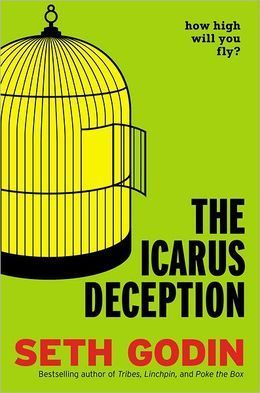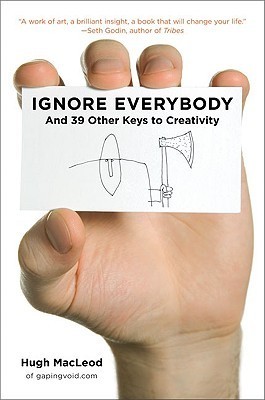
The Icarus Deception: How High Will You Fly?
Book Description
Dare to defy gravity and unlock your true potential. In *The Icarus Deception*, Seth Godin uncovers the shackles of fear that bind our creativity and ambition. With powerful insights, he challenges the myth of safety and mediocrity, daring you to take the leap into the unknown. As boundaries blur and innovation reigns, the call to rise above the ordinary becomes impossible to ignore. Will you embrace the art of being remarkable, or remain grounded by self-doubt? The sky awaits—how high will you fly?
Quick Book Summary
In "The Icarus Deception," Seth Godin contends that our deeply ingrained fear of standing out has kept us from reaching our greatest potential. Using the myth of Icarus—who was warned not just against flying too high, but also too low—as a metaphor, Godin challenges the notion that safety is found in staying average. Instead, he argues that the current age rewards those who embrace creativity, challenge the status quo, and act as artists in their work and lives. Godin provides insight into overcoming resistance to risk, breaking free from conformity, and practicing the daily discipline of creating and sharing meaningful work. Ultimately, he encourages readers to let go of self-doubt, ignore the limits imposed by others, and seize the opportunity to soar in an era that values connection and originality.
Summary of Key Ideas
Table of Contents
Rejecting the Safety of the Status Quo
Seth Godin uses the Icarus myth to challenge the widely held belief that safety lies in keeping a low profile and avoiding risks. He reveals how, historically, society taught us to follow rules and fit in to protect ourselves. This model worked well in the industrial era, when predictable obedience was valued, but Godin warns that it now limits our potential. He reframes Icarus’s failure as not just about flying too close to the sun, but also about the danger of flying too low and never risking the journey toward greatness.
Embracing the Artist’s Mindset
A central idea in the book is the need to adopt an artist’s mindset—a commitment to creative expression and the courage to do meaningful work. Godin broadens the definition of an artist, suggesting anyone willing to create, connect, and make things happen counts as one. By seeing ourselves as artists, we give ourselves permission to solve problems in innovative ways, take ownership of our craft, and pursue authenticity over conformity.
Overcoming Resistance and Fear
Godin addresses the internal and external resistance that arises when we attempt to act differently, including the fear of failure, criticism, or standing out. He emphasizes that fear is a natural response, but it shouldn’t be a barrier. By consistently practicing our craft, embracing discomfort, and learning from perceived failures, we can overcome self-doubt. Godin encourages a daily habit of producing and sharing work, which gradually diminishes anxiety and builds confidence.
The Importance of Connection and Sharing
In the connection economy, relationships and genuine interactions hold more value than ever. Godin explains that sharing our work and stories establishes a trusting audience and invites collaboration. He highlights the importance of making authentic connections that benefit not only the creator but also the community. When we generously contribute our unique perspectives, we open up opportunities for influence, learning, and continued growth.
Reimagining Success in the Modern Economy
Finally, Godin redefines what it means to succeed. Rather than pursuing traditional accolades, he suggests measuring success by the impact we have, the connections we foster, and the difference our work makes. The new economy rewards those who are willing to stand out, adapt, and be vulnerable in pursuit of making art—whatever form that may take. In essence, "The Icarus Deception" is a clarion call to embrace our potential and fly higher than we once believed possible.
Download This Summary
Get a free PDF of this summary instantly — no email required.





